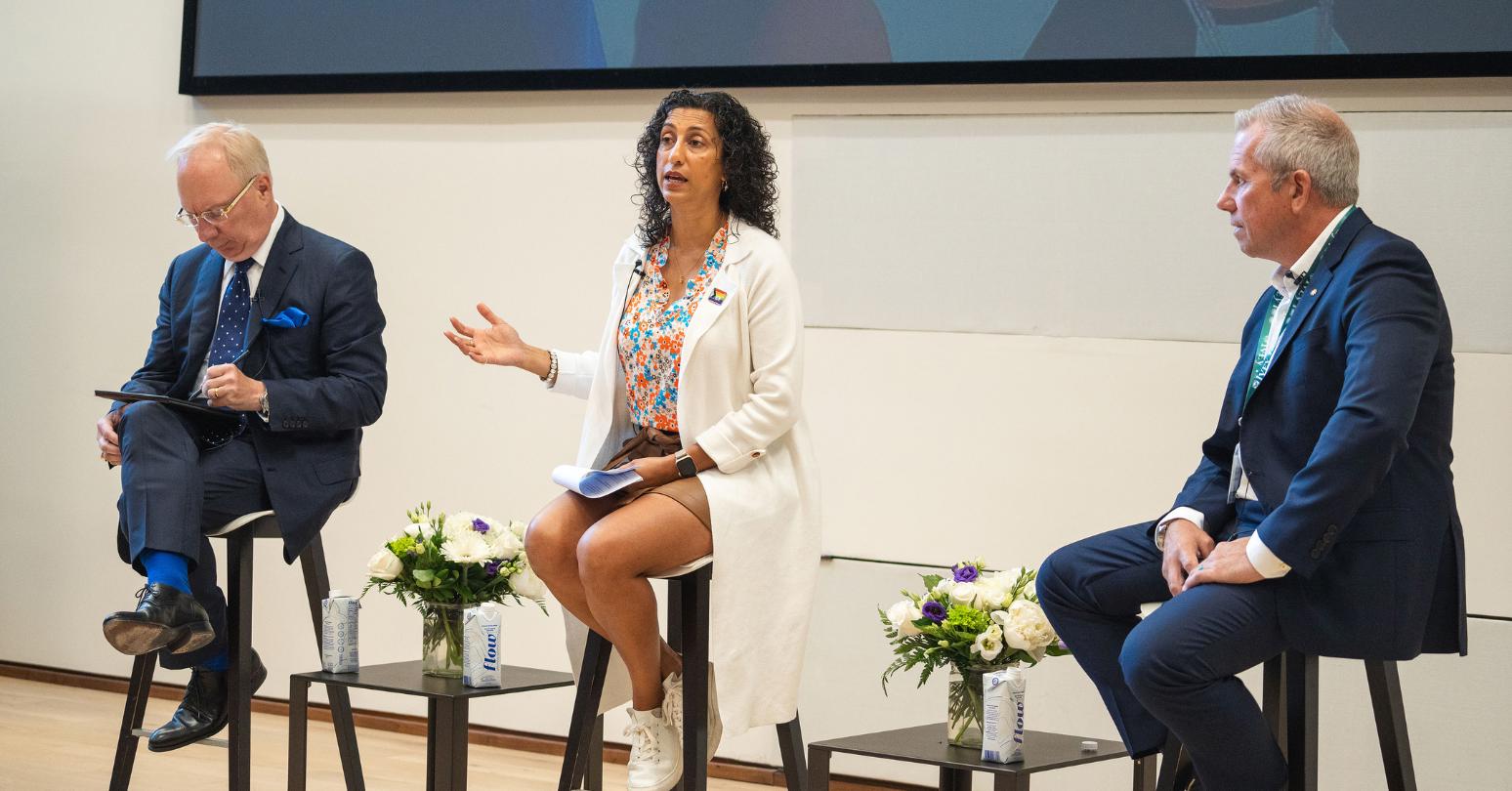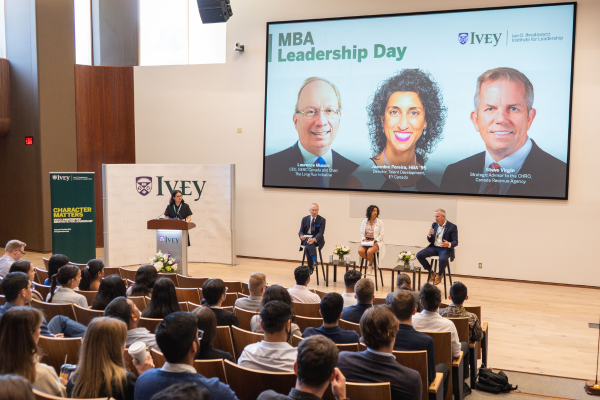Ivey’s recently renewed mission is to develop leaders who think globally, act strategically, and address critical issues facing organizations and society – the evolution of work, Canada’s place in the world, and sustainability.
In order for tomorrow’s leaders to address society’s critical issues, they need strong leader character, which was the focus of Ivey’s 2023 MBA Leadership Day, where MBA students engaged in a day dedicated to their development as leaders.
Hosted by the Ian O. Ihnatowycz Institute for Leadership, MBA Leadership Day challenged students to find courage, find purpose, learn to reflect, and care for others.
Related to this story
Learning to Lead
The day began with the opportunity to hear from a panel of influential leaders about the experiences that shaped them through their careers. The panel included Dr. Laurence Mussio, Chair of The Long Run Institute and CEO of SIERC Canada; Jeannine Pereira, HBA '95, Director of Talent Development at EY Canada; and Steve Virgin, Strategic Advisor to the CHRO, Canada Revenue Agency. The discussion was moderated by Dusya Vera, PhD '02, Executive Director of the Ihnatowycz Institute.
Here are some takeaways:
What does it take to be a sustainable leader?
“Sustainable leaders need to have a clear sense of what their vision is and also a much larger context,” said Dr. Mussio in reference to Environmental, Social, and Corporate Governance (ESG). “You have to understand what ESG is, what sustainability is, and what it is in a Canadian context. It’s not just about buying a Tesla – It’s about a system of values that has to be implemented into an organization.”
The role of leaders in the future of work
“We have to evolve,” says Virgin. “And the first aspect is, we have to care for people more than ever. As you’re building teams and looking to recruit and retain people, you have to care for them. Account for differences and look at what works for your team… You need to inspire people to do great things – and you do that by caring about them.”
Defining purpose-driven leadership
“I wake up everyday excited to empower people to lead inclusively so that everyone can courageously contribute their unique strengths,” said Pereira, sharing her personal purpose. “Purpose is so important because if you can articulate your purpose and can play out your purpose in your everyday living, you will be more motivated, more engaged, and have better resilience and well-being.”
Pereira addressed the MBAs looking to empower them to lead inclusively. “I want you to not only courageously contribute your strengths, but then bring those out in others. I encourage each one of you to think about, what is your purpose and how will you play that out in your day-to-day decisions?”
Virgin took the challenge one step further and encouraged students to write down their purpose by the time they complete their MBA. “The process of reflection is so important,” he added.
Learn from reflections
Each of the three panelists shared great insights into how they reflect on their daily experiences as leaders. Virgin stressed the importance of having an accountability partner, someone to help “keep it real” and hold you accountable. He also encouraged leaders to stimulate healthy debate within their teams and create psychological safety for team members.
Pereira referenced Professor Mary Crossan and her Leader Character Practitioner Certification Program, siting the common phrase Crossan used: Who am I becoming while I am busy doing? “That line plays in my head when I reflect on the decisions I make each day,” said Pereira.
Dr. Mussio, a historian, noted we can also access the experience of great leaders by reading about them, reflecting on their faults, and analyzing how they strategized in difficult situations. “You can get an insane return on investment just by reading a few books,” said Dr. Mussio. “If you don’t know history and the deeper context [of historical leaders], then you’re limited to personal experience.”




